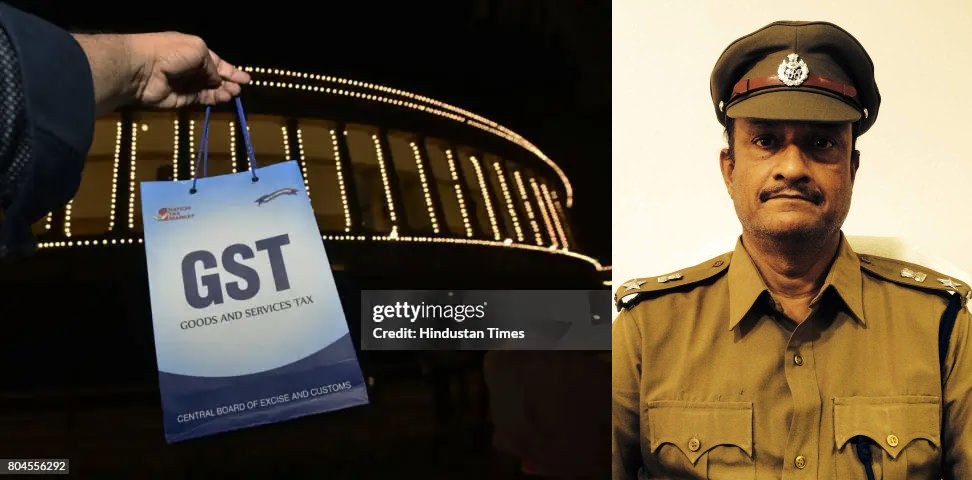Integrity Then and Now: From Namak ka Daroga to a Modern-Day CGST Superintendent
By Lokanath Mishra
On September 3, 2025, News18Hindi reported a rare and inspiring incident. A Superintendent of CGST and Customs refused to accept a bribe of ₹22 lakh offered by two individuals seeking relief in tax evasion cases linked to online companies. Instead of succumbing to temptation, the officer directly approached the Central Bureau of Investigation (CBI), leading to a remarkable “Reverse Trap Operation.”

The accused, Ram Sewak Singh and Sachin Kumar Gupta, were caught red-handed while attempting to deliver the bribe. Subsequent CBI raids revealed significant evidence pointing to a larger network of organized tax evasion. This courageous act by the officer has been hailed as a shining example of honesty in a system often plagued by corruption.
The incident immediately draws a parallel with Munshi Premchand’s timeless short story “Namak ka Daroga.” Written in colonial India, the story highlights the struggles of an honest officer in a corrupt environment, and its moral message remains just as relevant today.
The Literary Parallel: Namak ka Daroga:
Premchand’s protagonist, Vanshidhar, a newly appointed salt inspector, refuses bribes from smugglers despite poverty and pressure. When he catches the wealthy and influential Pundit Alopideen smuggling salt, he stands firm against offers of gold, lifelong comfort, and political connections.
Though Vanshidhar’s honesty initially earns him ridicule and no recognition from the system, Alopideen himself comes to respect his incorruptibility and offers his daughter in marriage, acknowledging that true wealth lies in integrity, not in money or influence.
The Timeless Message:
The resemblance between the fictional salt inspector of the 19th century and the real GST Superintendent of 2025 is striking. ( The designation of Salt Inspector changed to Inspector of Central Excise and Customs in 1947 and now from 01.07.2017 the designation is Inspector CGST and Customs) • Both resisted large sums of money.
• Both upheld the law when it was easier to bend.
• Both proved that honesty may not yield immediate rewards from the system, but it builds a reputation that even the corrupt are forced to admire.
Just as “Namak ka Daroga” emphasized that a man’s value lies not in wealth but in character, the modern CGST officer’s refusal of a bribe reminds us that integrity still shines as the rarest and most precious virtue.

Conclusion
From Premchand’s colonial-era salt inspector to today’s CGST Superintendent, the lesson remains unchanged:
• Honesty is priceless.
• Corruption may be powerful, but integrity commands eternal respect.
• True guardians of society are those who place duty above personal gain.
The echo between literature and life reminds us that while times change, the struggle between corruption and integrity remains constant — and every act of honesty, whether in fiction or reality, strengthens the moral fabric of a nation.
Ratha Yatra in America (1967–Present):


Thanks sir.A very good article.
Thank you Himanshu babu.
Yes.Honest people reward by God. Now a days person like Vanshidhar is rare.
You are fully correct.
Yes, you are right.
You are correct.
Pingback: The Midnight Train and the Fractured Marriage - UniverseHeaven
Yes you are correct.
Pingback: A Family Adventure in San Francisco – September 5, 2025 - UniverseHeaven
Pingback: A Story of Dwapar Yuga in Prose: ( part-14) - UniverseHeaven